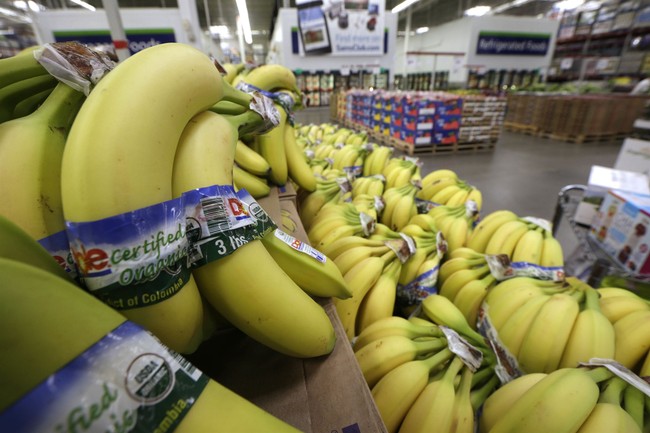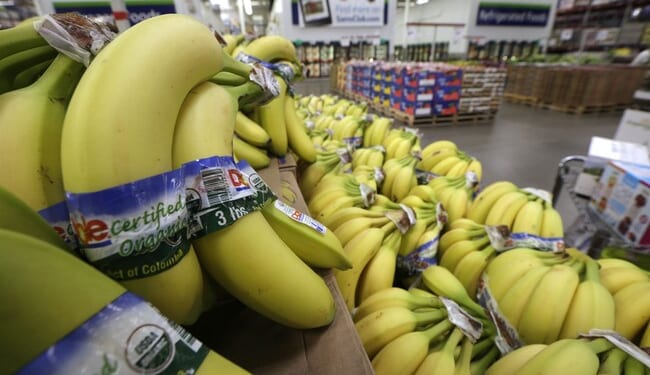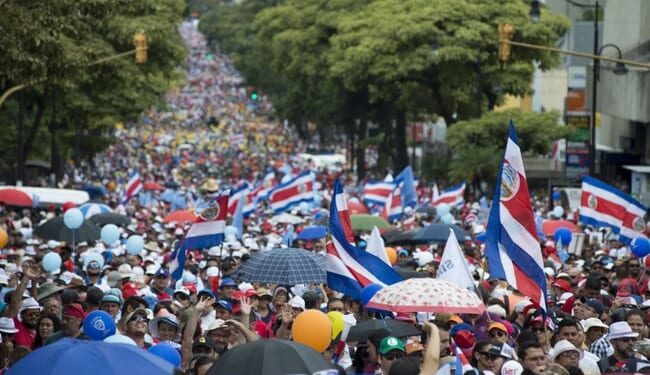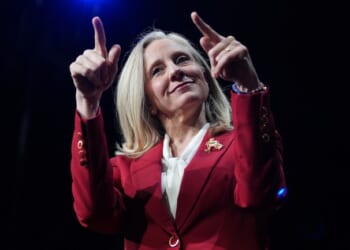
Yesterday the Wall Street Journal reported that the Trump administration was making some adjustments to tariffs on a handful of items including bananas and coffee.
The U.S. plans to eliminate tariffs on bananas, coffee and certain apparel and textile products from Ecuador, Argentina, El Salvador and Guatemala under framework agreements with the Latin American nations, a senior administration official told reporters Thursday.
The move is part of a shift from the Trump administration to water down some of its so-called reciprocal tariffs in the face of rising prices for consumers, as well as legal uncertainty after a Supreme Court hearing this month…
Treasury Secretary Scott Bessent also said this week that the administration was working to reduce prices on those agricultural goods and others.
“You’re going to see some substantial announcements over the next couple of days in terms of things we don’t grow here in the United States, coffee being one of them, bananas, other fruits, things like that,” Bessent told Fox News on Wednesday. “That will bring the prices down very quickly.”
The goal, in a word, is affordability. To it’s credit, the Trump administration has very quickly learned the lesson from last week’s elections and is trying to do something about it before it generates a blue wave in next year’s midterm elections.
Lower prices for coffee and fruit. A 50-year mortgage to reduce monthly home payments. Direct checks of $2,000 to many Americans. And a new willingness to welcome skilled foreign labor into the United States.
The Trump administration has begun floating a series of ideas over the past several weeks as it confronts the cold reality that its economic policies are not helping many Americans who continue to struggle with elevated prices and a sense of economic pessimism.
Last week’s elections made clear that affordability was top of mind for many Americans. Voters in New York propelled Zohran Mamdani, the democratic socialist with an ambitious agenda to lower the cost of living, to victory in the mayoral race. Democratic wins in New Jersey and Virginia were built on promises to address the high cost of living in those states.
Only 30 percent of voters believe President Trump has lived up to their expectations for tackling inflation and the cost of living, according to a recent NBC News poll. That was his lowest mark for any issue respondents were asked about. And a meager 27 percent of voters in a CNN poll in late October said Mr. Trump’s policies had improved the country’s economic conditions — less than half of those who thought he had made matters worse.
What the move on coffee and bananas shows is that, at some level, the Trump administration is aware that the tariffs are a problem. Trump has used the tariffs as a stick to pressure other countries into making trade deals that he argues are more fair to the US.
He has also argued at times that tariffs are part of a longer-term strategy to bring manufacturing back to the US. The theory is that companies offshore production because building things in China or Mexico is so much cheaper. Producing the same goods in America would raise the prices of those goods substantially and make them uncompetitive with rivals who are still producing things abroad.
But tariffs level the playing field. By making it more expensive for everyone to produce products abroad, the math for making those products here at home looks a bit better. And when you add to that the uncertainly about the geo-political situation with China, some companies might decide to bring those jobs home. What happens to products produced in China if China suddenly invades Taiwan? The disruption could be catastrophic for some US companies.
The problem with the onshoring argument, at least in my view, has always been that it will take years to accomplish some of those goals and will also result, inevitably, in goods that cost more. So, for instance, Apple has moved some iPhone production out of China to India, but it still hasn’t tried to move that production to California because the cost of an iPhone would skyrocket. Estimates vary, but an American iPhone might cost as much as $3,500. At that price, Apple would be selling a lot fewer of them and consumers would not be happy about the prices.
All that to say, there are some arguments for tariffs that have a certain logic, but the things they can accomplish aren’t short term and aren’t cheap. And in a situation where affordability seems to be the key to the midterm elections less than a year away, Trump may have to make a choice between sticking with his favorite tool of international trade and diplomacy or keeping prices low. The decision he made this week with regard to bananas and coffee signals that he sees the tradeoff and has decided he can’t ignore the cost of those policies.
And of course, the Democrats are hip deep in this as well. They not only talking about affordability, they are disrupting the economy to sow more chaos leading into the midterms. The chaos benefits them so long as they can blame it on Trump.
Wage increases have been outpacing inflation in the United States this year, but not significantly enough for people to feel like they are better off. And a protracted government shutdown sowed panic among lower-income Americans whose food stamps became a political pawn in the standoff. Food banks across the United States reported a surge in customers, with local and national media outlets showing long lines of people waiting for groceries to feed their families.
Even before the shutdown began, I was making the argument that it would benefit Democrats to damage the economy. The general consensus is that shutdown’s don’t usually have a big impact on the economy, but this is the longest shutdown ever and, as mentioned here, there were already signs the economy was struggling, at least for people with lower incomes.
I still think that’s as likely an explanation of the shutdown as anything else, though of course no one in the media has dared to suggest Democrats might put party above country in that way. Do Dems care about Obamacare premiums? Yes, I’m sure they do. But what they really want is to take some lever of power back from the Trump administration. Dinging the economy in a way that makes their affordability argument even stronger seems like an obvious way to get there. The Trump administration is going to have to work hard and fast to make sure this gambit doesn’t work for Democrats.
Join Hot Air VIP and use the promo code FIGHT to get 60% off your VIP membership!








